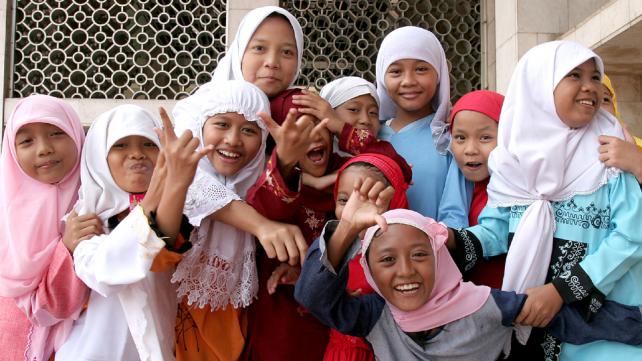As my last civic issues post, I want to talk about the future, and how some people’s futures may be different, or stunted, merely because they have a different race or religion. Unfortunately, in a place meant to education and provide hope for one’s future, there has been bias present against Muslim/Middle-Eastern students, making it hard to move on and truly get an education. In some cases, it is the teacher’s duty to help their students lose these prejudices, unjust biases towards other people, and see everyone as equal regardless of how they look.
Most of the issues that occur in places of education or schooling are not started by educators or teachers alike, but rather the other students present in classrooms or lecture halls, creating a very hostile, unsafe environment for people, especially Muslim/Middle-Eastern people. “When Basir Jamil was 8 years old in 2001, he hated the terrorists who destroyed the World Trade Center, smashed into the Pentagon and downed an airplane full of people in rural Pennsylvania. So when he was called the same thing—a terrorist—a few years later in middle school, he was shocked.” While Basir Jamil’s experience is in no way okay or should be tolerated, unfortunately, it is not the worst experience someone has had in school.
On the website Tolerance.org, they attempt to show others why tolerance is important and should be enforced. There, they have an unfortunate list of just a few things that have happened to Muslim/Middle-Eastern people in their schooling environment. It says:
- In St. Cloud, Minn., a high school student created a short-lived Facebook group called “I hate the Somalians at Tech High.” The area is home to one of the largest groups of Somali refugees in the country, many of whom are Muslim.
- In Oklahoma, a student was suspended after wearing a hijab, or headscarf, at school on September 11, although she had worn it for weeks before.
- In Massachusetts, when a Cambridge store burned down, Muslim high school students were asked by classmates if they bombed the store.
- In New York, four high school students were charged with a hate crime after spending more than a year bullying a Muslim classmate, occasionally beating him and calling him a terrorist.
Obviously, because of the terrorist attacks of 9/11, there was an increased amount of fear surrounding Muslim/Middle-Eastern people. While this is an incredibly unfortunate, misguided side effect of these attacks, it justifies to these Islamophobic (an exaggerated fear, hatred and hostility toward Islam and Muslims that is perpetuated by negative stereotypes) people their actions, though no act of hate or intolerance is justified.
In a study done by the University of Nebraska, they found, ” between 2015-2017 about Islamophobia and schools, we discovered 55 documented cases of “Islamophobia” in the US and 61 in North America, and these account for only the ones reported in major newspapers, so they do not include cases that were not reported regionally or nationally, and in many of the federally refugee designated sites.” Further, it is brought up, “As William Dalrymple explained in a follow-up in The New York Times, this renewal of those fears stems from the American tendency to see the Islamic world as a “single, terrifying monolith” — prejudicial perceptions that continue to result in the marginalization of Muslims from the
social, political, and public life of the nation and our schools.”
According to NPR.org: “Muslim children are more likely to be bullied in school than children of other faiths. A new survey by the Institute for Social Policy and Understanding (ISPU) reveals that 42 percent of Muslims with children in K–12 schools report bullying of their children because of their faith, compared with 23 percent of Jewish and 20 percent of Protestant parents.” Even effects of the previous Presidential election had an effect on the school environment, especially regarding Muslim/Middle-Eastern children, many teachers have said.
If these are words that children are hearing their parents, aunts or uncles use, they are most likely going to be repeated, as children are very good at imitation. The place where these children will repeat these words is in their sole social atmosphere, which is school, and towards other children. Not only does this result in a hostile atmosphere, but it discourages these Muslim/Middle-Eastern children to continue their education and establish a successful, fulfilling future.

Sources:

